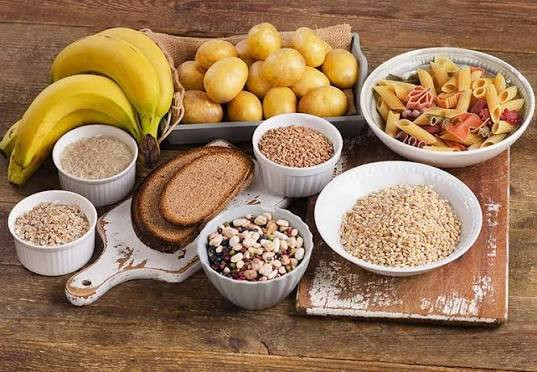Learn Why You Shouldn't Cut Carbs to Lose Fat

Disclaimer: The images used on this website are for illustrative purposes only. We do not claim ownership or have the rights to these images, and they are used under the doctrine of fair use or with the proper licenses whenever applicable. However, if you believe that any image used here violates copyright law, please contact us immediately, and we will take appropriate action to rectify the situation.
Disclaimer: Please consult your doctor before making any significant changes to your diet.
In the ever-evolving world of nutrition and weight loss, it's easy to fall prey to popular diet trends promising quick results. One such trend is the idea of cutting out carbohydrates in order to shed unwanted fat. However, before embarking on any dietary regimen, it is crucial to understand the potential consequences. In this article, we will explore why cutting carbs for weight loss may not be the most effective or sustainable approach.
The Importance of Carbohydrates
Carbohydrates are one of the three macronutrients essential for a balanced diet, alongside protein and fat. They serve as the primary source of energy for our bodies and play a crucial role in fueling various bodily functions. Carbohydrates are broken down into glucose, which is used to power our brain, muscles, and organs. By drastically reducing carb intake, you may deprive your body of this vital energy source, leading to several potential issues.Muscle Loss and Reduced Metabolism
When you cut carbs, your body turns to alternative fuel sources, such as fat and muscle. While the initial weight loss may seem promising, it's essential to distinguish between losing fat and losing muscle mass. Severely restricting carbohydrates can lead to muscle breakdown, negatively impacting your metabolism. A slower metabolism means your body burns fewer calories at rest, making it harder to maintain weight loss in the long run.Lack of Essential Nutrients
Carbohydrates, particularly those from whole grains, fruits, and vegetables, provide essential vitamins, minerals, and dietary fiber. By eliminating or significantly reducing carb-rich foods, you may miss out on these vital nutrients. A balanced diet comprising a variety of food groups is key to maintaining optimal health. Instead of cutting carbs entirely, focus on choosing healthier carbohydrate sources, such as whole grains, legumes, and fruits, while avoiding refined and processed options.Imbalanced Hormones and Mood Swings:
Carbohydrates play a role in regulating serotonin, a neurotransmitter responsible for mood stabilization and promoting feelings of well-being. Drastically reducing carbs can lead to imbalances in serotonin levels, potentially resulting in mood swings, irritability, and even depression. It's important to prioritize both physical and mental health during any weight loss journey.Unsustainable Long-term Approach
Extreme dietary restrictions are challenging to sustain over time. Cutting carbs may lead to feelings of deprivation, which can result in binge-eating and a cycle of restrictive dieting followed by overeating. Rather than resorting to short-term fixes, focus on developing healthy, balanced eating habits that you can maintain in the long run.Conclusion
While low-carb diets have gained popularity for weight loss, it is important to consider the potential drawbacks. Cutting carbohydrates drastically can negatively impact your overall health, metabolism, and mood. A more sustainable approach to weight loss involves creating a balanced diet that includes the right types and amounts of carbohydrates, along with other essential nutrients. Always consult with a healthcare professional or registered dietitian before making significant changes to your diet. They can provide personalized guidance based on your individual needs, ensuring a safe and effective weight loss journey while maintaining overall well-being. Remember, sustainable and healthy weight loss is a result of a well-rounded approach, incorporating balanced nutrition, regular physical activity, and positive lifestyle habits.Fill out the form for a free session
